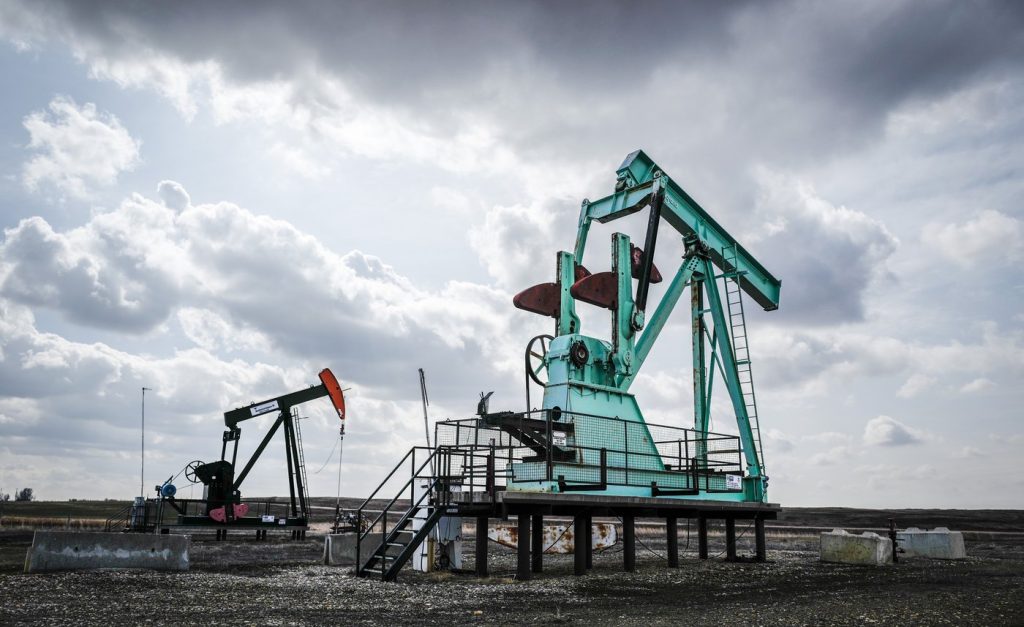A recent international report indicates that Canada and other major fossil fuel-producing nations are undermining global efforts to meet critical climate targets. The findings suggest that by 2030, fossil fuel production levels are projected to exceed what is necessary to align with the Paris Agreement by more than double. As some countries pledge to undertake a clean energy transition, others are returning to an outdated reliance on fossil fuels.
The Production Gap Report, created by three climate research non-profits, warns that the persistent inability of governments to reduce fossil fuel production and associated emissions will necessitate more drastic reductions in the future. The report emphasizes that achieving these steeper reductions will be increasingly difficult and costly due to the continued expansion of fossil fuel infrastructure during the 2020s and the heightened urgency to reduce emissions going forward.
Specifically, the report estimates that countries are planning to produce 120% more fossil fuels in 2030 than is compatible with limiting global warming to 1.5 degrees Celsius. For a two-degree limit, planned production is expected to be 77% more than what is sustainable. The analysis reveals that the production gap has widened compared to findings from two years prior.
Among fossil fuels, coal exhibits the largest discrepancy, with anticipated production reaching 500% above the levels necessary to stay within the 1.5-degree pathway and 330% above the two-degree pathway. Global oil and gas production are projected to be 31% and 92% higher, respectively, than what would align with a 1.5-degree target, while being 16% and 33% above the two-degree pathway.
The temperature thresholds set forth in the 2015 Paris Agreement aim to prevent catastrophic and irreversible climate consequences. The more ambitious 1.5-degree target was championed by small island nations and is supported by a growing scientific consensus indicating that meeting this goal could mitigate risks of extreme heat, rising sea levels, and coastal flooding.
As we enter ten years post-Paris Agreement, studies warn that the 1.5-degree threshold may soon be exceeded. Scientists are urging nations to take all possible measures to limit further warming and to implement strategies to eventually reduce global temperatures. Among the 20 major fossil-fuel producing countries analyzed in the report, Canada's proposed increase in oil production for 2030 ranks behind only Saudi Arabia, Brazil, the United States, and Nigeria, making Canada one of the top four oil producers globally, accounting for approximately 6.5% of the total production.
The report suggests that Canada's actual contribution to fossil fuel production might be underestimated, as it is based on energy forecasts from 2023, prior to the approval of several new liquefied natural gas (LNG) projects by the government. Furthermore, the increase in oil and gas production coincides with Canada scaling back on some critical climate policies. Nichole Dusyk, a contributor to the report and a senior policy adviser at the International Institute for Sustainable Development, expressed concern, stating, "We're moving in the wrong direction on both fronts."
Canada's Prime Minister Mark Carney has rolled back the consumer carbon price and delayed the electric vehicle sales mandate, remaining noncommittal regarding legally binding emission targets for 2030 and 2035, despite affirmations of commitment to achieving net-zero emissions by 2050. Additionally, the future of federal policies aimed at capping emissions in the oil and gas sector remains uncertain, facing opposition from Alberta and oil industry representatives who criticize the policy as a hindrance to growth.
In the context of regulatory rollbacks, Alberta has frozen its industrial carbon price for 2026, while Saskatchewan has sought to extend the operational lifespan of its coal facilities. The report further highlights Canada for its substantial financial investments in the Trans Mountain pipeline, amounting to billions of dollars.
Dusyk remarked, "We are continuing to fuel climate change," emphasizing the direct consequences for Canadians in the form of heat waves, floods, droughts, and wildfires, which degrade the quality of life and impose financial burdens such as increased insurance costs and property damage.
While the report presents bleak assessments, it also acknowledges positive trends in clean energy technologies. Advancements in solar energy, batteries, and electric vehicles are accelerating, with significant decreases in production costs. Currently, renewable energy is noted as the most cost-effective source of new electricity generation in many regions worldwide.










